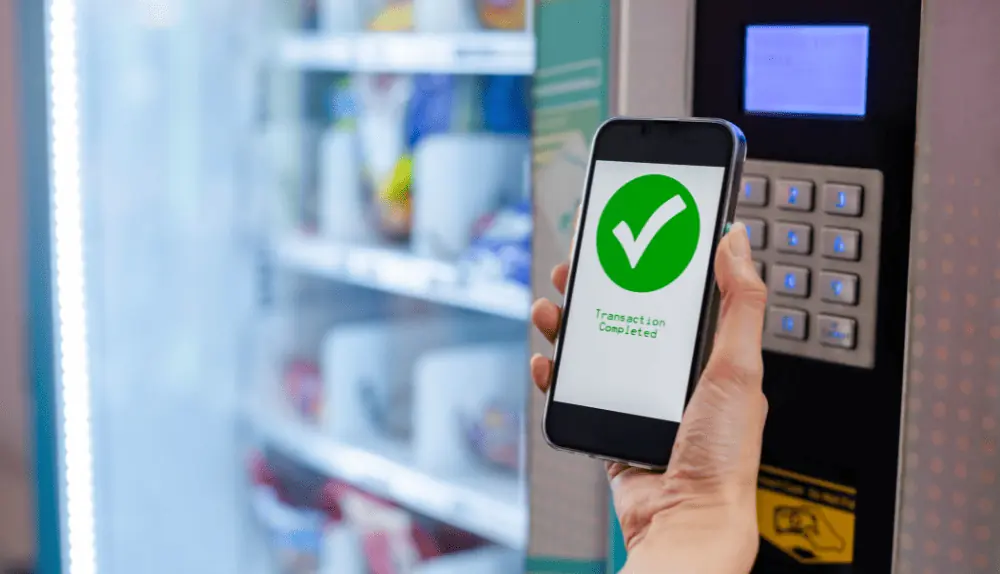In today’s fast-paced digital era, building a successful business means adapting to the ever-changing landscape of customer demands and preferences. One critical aspect of this adaptation is finding reliable and efficient ways to accept recurring payments. Whether you run a subscription-based service, an online store with monthly memberships, or offer ongoing services to your clients, mastering the art of recurring payments is key to ensuring steady cash flow and customer satisfaction.
In this guide, we will delve into the world of recurring payments, exploring the various methods, tools, and strategies that will empower you to streamline your business operations and propel your growth. Get ready to unlock the secrets of seamless payment processing and embark on a journey toward financial stability and long-term success!
What are Recurring Payments?
Recurring payments refer to a financial arrangement where a customer authorizes a business to automatically charge their account at regular intervals for goods or services provided. These payments are typically scheduled on a recurring basis, such as monthly, quarterly, or annually, and are commonly used in subscription-based models, membership programs, and ongoing service contracts. They offer convenience and simplicity for both businesses and customers, eliminating the need for manual invoicing and payment processing each time a transaction occurs.

Recurring payments ensure a predictable revenue stream for businesses, facilitating better cash flow management and reducing administrative tasks. For customers, they provide ease of use, as they don’t have to remember to make regular payments manually. Popular methods for accepting recurring payments include credit card or debit card charges, direct debits, and electronic funds transfers.
With the increasing digitization of commerce, understanding and implementing recurring payment systems has become essential for businesses looking to optimize their financial operations and deliver seamless customer experiences.
How Do Recurring Payments Work?
Recurring payments are a convenient and automated way for businesses to collect regular payments from customers. By setting up recurring payment arrangements, businesses can streamline their billing processes, reduce administrative tasks, and ensure a consistent cash flow. Let’s dive into the workings of recurring payments and explore the key components involved.

Customer Authorization
To initiate recurring payments, businesses must obtain customer authorization. This can be done through various means, such as signed contracts, online consent forms, or electronic acceptance during the checkout process. Customer authorization confirms their willingness to allow the business to charge their designated payment method at predefined intervals.
Payment Method Selection
Customers typically provide their payment information when setting up recurring payments. The most common payment methods include credit cards, debit cards, and bank transfers. Customers may be required to enter their payment details directly into the business’s secure system or utilize third-party payment processors for added security.
Payment Scheduling
Once the customer’s payment method is authorized, businesses can schedule recurring payments based on the agreed-upon frequency. This can be monthly, quarterly, annually, or any other interval specified in the arrangement. The business’s billing system or payment gateway takes care of automatically generating and processing invoices at the scheduled intervals.
Notification and Confirmation
Before each recurring payment is charged, it is a good practice for businesses to notify customers in advance. This notification serves as a reminder and allows customers to review the upcoming transaction. Additionally, businesses may send email receipts or payment confirmations after successfully processing each recurring payment.
Payment Processing
On the scheduled date, the business’s payment system securely processes the recurring payment. It sends a request to the customer’s chosen payment method, requesting the specified amount. The payment gateway communicates with the relevant financial institutions to authorize and complete the transaction.
Updating Payment Information
Over time, customers may need to update their payment information due to expired cards, changes in banking details, or other reasons. Businesses should have a straightforward process for customers to modify their payment details to ensure uninterrupted recurring payments.
Customer Support and Disputes
In the event of billing errors, payment failures, or customer disputes, businesses must provide responsive customer support. Resolving these issues promptly and professionally is crucial for maintaining customer satisfaction and preserving long-term relationships.
Security and Compliance
Handling recurring payments necessitates a strong focus on data security and compliance with relevant regulations, such as the Payment Card Industry Data Security Standard (PCI DSS). Businesses should implement robust security measures, including encryption, tokenization, and regular security audits, to safeguard customer payment information.
Overall, recurring payments offer a convenient and efficient way for businesses to collect regular payments from customers. By understanding the customer authorization process, payment methods, scheduling, notifications, and payment processing, businesses can effectively manage recurring payments and enhance the overall customer experience.
Types of Recurring Payments
There are several types of recurring payments commonly used in businesses. Here are some of the most prevalent ones:
Subscription-Based Payments
This type of recurring payment is used for services or products offered on a subscription basis. Customers pay a recurring fee at regular intervals, such as monthly or annually, to continue accessing the service or receiving the product. Examples include subscription boxes, streaming services, software subscriptions, and gym memberships.
Membership Dues
Membership-based organizations or clubs often collect recurring payments in the form of membership dues. Members pay a set amount on a recurring basis to maintain their membership privileges and access to exclusive benefits.
Installment Payments
Installment payments allow customers to divide the cost of a product or service into multiple payments over a specified period. Each payment is made at regular intervals until the full amount is settled. Installment payments are commonly used for high-ticket items like electronics, furniture, or educational programs.
Ongoing Service Contracts
Businesses that provide ongoing services, such as maintenance, consulting, or marketing services, may use recurring payments based on a contractual agreement. Customers are billed at regular intervals for the continued provision of services.
Rent or Lease Payments
Property owners or landlords often collect recurring payments in the form of rent or lease payments. Tenants pay a predetermined amount on a recurring basis for the use of a property or space.
Donations and Charitable Contributions
Nonprofit organizations often rely on recurring donations from supporters. Individuals can set up recurring payments to contribute a fixed amount at regular intervals to support a cause or organization.
Utility and Service Bills
Utility companies, telecommunications providers, and service-based businesses often offer recurring payment options for bills. Customers can set up automatic payments for services like electricity, internet, phone, or cable bills, ensuring timely payment and avoiding late fees.
Loan Repayments
Lenders may set up recurring payment arrangements for loan repayments. Borrowers authorize automatic payments at regular intervals to repay the loan amount and accrued interest over time.
Insurance Premiums
Insurance companies often offer recurring payment options for policy premiums. Customers can set up automatic payments to ensure their policies remain active and premiums are paid on time.
SaaS (Software as a Service) Subscriptions
Businesses that provide software services on a subscription basis, such as cloud-based software or online tools, commonly use recurring payments. Customers pay a recurring fee to access and utilize the software.
These are just a few examples of the various types of recurring payments businesses may employ. The specific type of recurring payment used depends on the nature of the business and the products or services being offered.
Benefits of Recurring Payments
Recurring payments offer numerous benefits for both businesses and customers. Let’s explore the advantages of implementing recurring payment systems:
Predictable Cash Flow
Recurring payments provide businesses with a steady and predictable cash flow. By having a regular influx of revenue, businesses can better plan their expenses, invest in growth opportunities, and maintain financial stability.
Convenience and Time-saving
For customers, recurring payments eliminate the need to initiate payments each time a transaction occurs manually. This convenience saves time and effort, allowing customers to focus on other priorities while ensuring their bills are paid on time.
Improved Customer Retention
By offering recurring payment options, businesses can enhance customer satisfaction and loyalty. Customers appreciate the convenience and seamless experience of automated payments, which can contribute to longer-lasting relationships and reduced customer churn.
Reduced Administrative Tasks
Recurring payments automate the billing and collection process, reducing administrative burdens for businesses. With fewer manual tasks, such as generating invoices, sending reminders, and processing payments, businesses can allocate their resources more efficiently.
Lower Transaction Costs
Compared to processing individual transactions, recurring payments often come with lower transaction costs. This can result in significant savings for businesses, especially those with a high volume of recurring transactions.
Enhanced Financial Planning
The predictability of recurring payments enables businesses to plan and forecast their finances more accurately. It facilitates budgeting, financial projections, and strategic decision-making, contributing to long-term business growth.
Flexible Billing Options
Recurring payments allow businesses to offer flexible billing options to customers. This includes monthly, quarterly, or annual payment plans, accommodating varying customer preferences and financial capabilities.
Streamlined Customer Experience
Recurring payments create a seamless and hassle-free experience for customers. They eliminate the risk of missed payments, late fees, and disruptions in service, ensuring a positive customer journey.
Increased Sales and Upselling Opportunities
By offering subscription-based models or membership programs with recurring payments, businesses can drive additional sales and revenue. They can also leverage upselling and cross-selling strategies to encourage customers to upgrade or add supplementary services.
Enhanced Security and Fraud Protection
Implementing recurring payments through secure payment gateways and compliant systems enhances data security and reduces the risk of fraud. Encryption, tokenization, and authentication measures safeguard customer payment information.
Overall, recurring payments offer a win-win situation for businesses and customers, combining convenience, financial stability, and improved customer relationships. By leveraging the benefits of recurring payments, businesses can optimize their revenue streams and create a positive payment experience for their customers.
What Do You Need for Recurring Payment Processing?
To set up recurring payment processing for your business, you will need the following:
Payment Gateway or Merchant Account
A payment gateway or merchant account serves as the intermediary between your business and the customer’s payment method. It securely processes recurring payments and facilitates the transfer of funds to your business bank account. Research and choose a reputable payment gateway or merchant account provider that supports recurring payment processing.
Customer Authorization
You need a system in place to obtain customer authorization for recurring payments. This can be achieved through signed contracts, online consent forms, or electronic acceptance during the checkout process. Ensure that customers clearly understand and agree to the terms and frequency of the recurring payments.
Payment Method Options
Determine the types of payment methods you will accept for recurring payments. Common options include credit cards, debit cards, and bank transfers. Ensure that your payment gateway supports the selected payment methods and can securely process recurring transactions.
Billing System or Software
Implement a billing system or software that can generate and manage recurring invoices. This system should be capable of automatically scheduling and processing recurring payments based on the agreed-upon intervals.
Customer Communication
Develop a system for notifying customers about upcoming recurring payments. This can be done through email notifications, SMS reminders, or in-app messages. Clear communication helps customers stay informed and avoids any surprises related to billing.
Payment Information Security
Implement robust security measures to protect customer payment information. This includes adhering to industry standards like the Payment Card Industry Data Security Standard (PCI DSS). Encrypt customer data, utilize tokenization techniques and regularly update security protocols to minimize the risk of data breaches.
Payment Information Management
Ensure your business has a secure and compliant system for storing and managing customer payment information. Consider using a tokenization system that replaces sensitive payment data with unique tokens, reducing the risk of data theft.
Payment Information Updates
Provide a convenient method for customers to update their payment information. This can be through a self-service portal or a customer support system. Keeping payment details up to date helps avoid payment failures and interruptions in recurring payment processing.
Customer Support
Have a dedicated customer support team or system in place to address any inquiries, issues, or disputes related to recurring payments. Promptly resolve customer concerns to maintain their trust and satisfaction.
Compliance with Regulations
Stay updated on relevant regulations and compliance requirements related to recurring payment processing, such as local consumer protection laws and data privacy regulations. Adhere to these regulations to ensure legal and ethical handling of customer payment information.
By having these components in place, you can establish a reliable and efficient system for recurring payment processing in your business.
How to Choose the Best Payment Gateway for Accepting Recurring Payments
Choosing the best payment gateway for accepting recurring payments requires careful consideration of various factors. Here are some key points to help you make an informed decision:
Recurring Payment Support
Ensure that the payment gateway explicitly supports recurring payments. Some gateways may offer basic payment processing but lack the necessary features and functionality specifically designed for recurring billing. Look for a gateway that provides robust recurring payment options and features.
Integration Options
Consider the integration options available with your existing business systems, such as your website, e-commerce platform, or billing software. The payment gateway should seamlessly integrate with your chosen platforms, allowing for a smooth and automated recurring payment process.
Payment Method Support
Determine which payment methods the gateway supports for recurring payments. Consider the preferences of your target audience and ensure that popular payment methods such as credit cards, debit cards, and bank transfers are available. Offering multiple payment options can enhance customer convenience and satisfaction.
Security and Compliance
Payment security is crucial when handling recurring payments and customer data. Look for a payment gateway that is compliant with industry standards, such as the PCI DSS. Additionally, consider additional security features like encryption, tokenization, and fraud prevention measures to protect customer information.
Pricing and Fees
Evaluate the pricing structure and fees associated with the payment gateway. Different gateways may have varying fee structures, including setup fees, transaction fees, and monthly subscription fees. Consider the volume of your recurring transactions and choose a pricing model that aligns with your business needs and budget.
Scalability and Growth
Consider your business’s scalability and future growth plans. Ensure that the payment gateway can accommodate an increasing number of recurring transactions as your business expands. It should also offer flexibility in adjusting payment plans, upgrading or downgrading subscriptions, and managing customer accounts.
Reporting and Analytics
Look for a payment gateway that provides robust reporting and analytics features. This allows you to track and analyze recurring payment metrics, such as churn rate, revenue projections, and customer behavior. Access to comprehensive data can help you make informed business decisions and optimize your recurring payment strategies.
Customer Support
Consider the level of customer support provided by the payment gateway provider. Prompt and reliable customer support is essential in resolving any technical issues, addressing payment inquiries, or assisting with integration and setup. Look for a provider with a reputation for responsive customer service.
Reputation and Reviews
Research the reputation and customer reviews of the payment gateway provider. Look for testimonials or case studies from businesses in similar industries or with similar needs. Positive reviews and recommendations can provide insights into the reliability, performance, and customer satisfaction of the payment gateway.
Additional Features and Services
Consider any additional features or services offered by the payment gateway that can add value to your business. This may include features like subscription management, dunning management (handling failed payments), customizable payment pages, or API capabilities for deeper integration with your systems.
By carefully evaluating these factors and assessing how they align with your business requirements, you can choose the best payment gateway for accepting recurring payments that suits your specific needs and helps drive your business growth.
Final Words
In conclusion, recurring payments offer many benefits for businesses and customers alike. They provide predictable cash flow, convenience, improved customer retention, reduced administrative tasks, and lower transaction costs. Businesses can enhance their financial planning, offer flexible billing options, streamline the customer experience, increase sales opportunities, and ensure enhanced security and fraud protection.
To successfully accept recurring payments, businesses need to select a payment gateway that supports recurring payments, integrate it with their systems, obtain customer authorization, securely store payment information, and provide robust customer support. Consideration should be given to factors such as recurring payment support, integration options, payment method support, security and compliance, pricing and fees, scalability, reporting and analytics, customer support, reputation, and additional features and services.
By carefully evaluating these factors and choosing the right payment gateway, businesses can establish a seamless and efficient recurring payment system that benefits both their bottom line and their customers’ satisfaction.
Frequently Asked Questions (FAQs)
Are recurring payments secure?
Yes, recurring payments can be secure when handled through a reputable payment gateway and with adherence to security standards like PCI DSS. Payment gateways use encryption and tokenization techniques to protect sensitive payment information, ensuring secure and safe transactions.
Can customers cancel recurring payments?
Yes, customers typically have the ability to cancel recurring payments. Businesses should provide clear instructions to customers on how to cancel their recurring payments, either through self-service portals or by contacting customer support.
What happens if a recurring payment fails?
If a recurring payment fails, businesses typically follow a dunning process. This involves sending notifications to customers informing them of the failed payment and requesting updated payment information. The business may attempt to retry the payment or suspend the service until the payment is successfully processed.
Can businesses change the amount or frequency of recurring payments?
Yes, businesses can often change the amount or frequency of recurring payments with proper notification to customers. It is important to clearly communicate any changes and obtain customer consent before making adjustments to recurring payment plans.
What payment methods can be used for recurring payments?
Common payment methods for recurring payments include credit cards, debit cards, and bank transfers. The availability of payment methods may vary depending on the payment gateway or merchant account chosen by the business.

